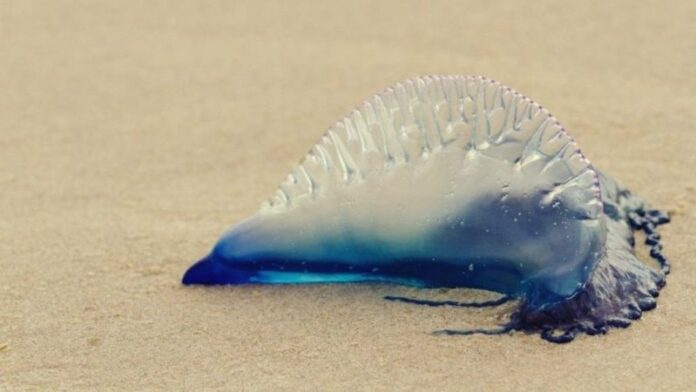Beachgoers in Terengganu are advised to be more careful following the discovery of the poisonous jellyfish known as Portuguese Man O’ War in Marang. – Picture via SoyaCincau
KUALA TERENGGANU, Jan 9 — Beachgoers in Terengganu are advised to be more careful following the discovery of the poisonous jellyfish known as Portuguese Man O’ War or its scientific name ‘physalia physalis‘ at Pantai Kelulut and Pantai Pulau Kerengga in Marang near here yesterday evening.
Terengganu Fisheries Department director Ruzaidi Mamat said checks by department staff at the two beaches this morning found four of this jellyfish.
“There may still be such jellyfish along the coast and monitoring is underway. Visitors are advised to immediately report to the department if they come across the jellyfish.
“Even though the jellyfish were found dead, people are advised not to touch the carcass as it is still poisonous and very dangerous. If stung, immediately go to a nearby clinic or hospital for treatment,” he said in a statement today.
The current phase of the Northeast monsoon season is one of the factors for the jellyfish to be beached along the East Coast and the last time the poisonous species was seen in the waters of Terengganu was in February 2020.
Ruzaidi said previous studies had recorded the discovery of more than 1,000 of this jellyfish floating in the waters of the Indian Ocean and they moved either by drifting according to the currents or wind.
“To avoid a threat on the surface, it can deflate its airbag and sink for a while. The average tentacle length of this species can reach over 30 feet long and is covered by poison-filled ‘nematocysts’ used to paralyse and kill fish and other small creatures.
“If there is contact with humans, the sting is very painful, fatal cases are very rare but one still needs to be careful. Jellyfish that are dead and washed ashore can also cause stings if touched,” he said. — Bernama


